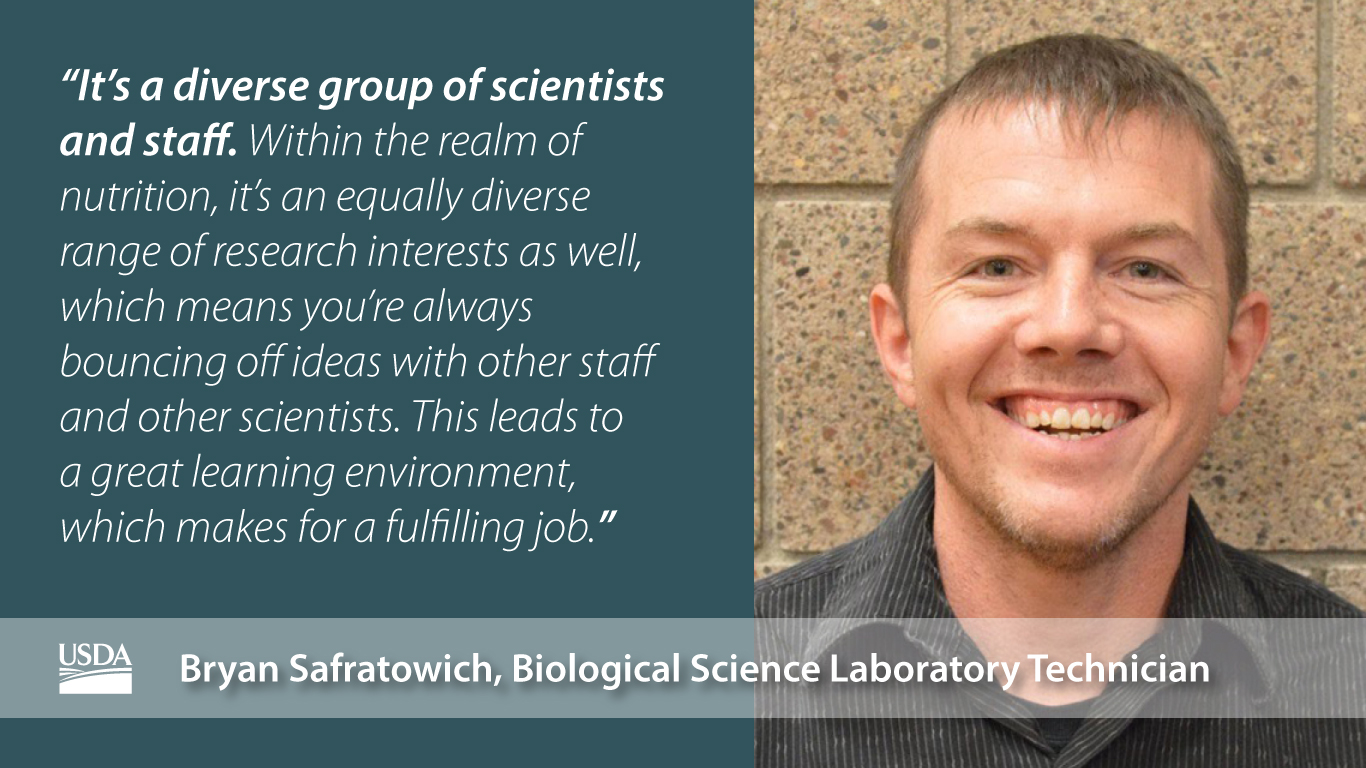| Bryan Safratowich |

|

Bryan Safratowich’s passion for learning drives his career as a biological laboratory technician at the Grand Forks Human Nutrition Research Center. He has a master’s degree in zoology and worked for the USDA in wildlife research for five years. He then shifted to nutrition research, and now he researches various diets with the goal of disease prevention and has been with USDA for almost a decade.
“We’re looking at the consumption of a high fermentable fiber diet, as opposed to that high-fat Western diet,” Safratowich said. “This fermentable fiber diet leads to much healthier gut microbiota, which allows for the production of short-chain fatty acids in the gut. These are beneficial and actually have anti-inflammatory effects, which can lead to the prevention of cancer production.”
In other words, pinpointing diets that lead to good gut health can have many other positive health effects.
Safratowich says that contributing to research for a greater cause is one of the best aspects of working at the Center. He hopes his career helps improve the health of Americans.
“One thing I like about the job is the fact that we can see the results of our research,” Safratowich said. Because of this, Safratowich says that he’s always learning.
“I’m involved in a number of different tasks from day to day, and I’m always building on my knowledge base, gaining new information and new techniques within the laboratory,” Safratowich said. “That’s very fulfilling for me.”
The dedicated technician recently had an opportunity to expand on his skillset by analyzing samples with mass spectrometry, an analytical tool used at the Center.
“It’s always been the scientist’s job to integrate and analyze that [mass spectrometry] data on the other side,” Safratowich said. “The scientist challenged me to become more involved with the integration of that. This last data set we had was actually the largest set of samples that I’ve ever worked with, and I did all the prep work on those samples, ran them through the mass spectrometer and then learned to do all the data integration and analyses.”
His work with the large data set acquired through the analysis of samples in the mass spectrometry machine earned him recognition among his colleagues. He said it was rewarding and “just a great experience.”
Safratowich enjoys working in this environment and recommends it to others who want to work in nutrition research.
“It’s a great place to work,” Safratowich said. “It’s a diverse group of scientists and staff. Within the realm of nutrition, it’s an equally diverse range of research interests as well, which means you’re always bouncing off ideas with other staff and other scientists. This leads to a great learning environment which makes for a fulfilling job.”
